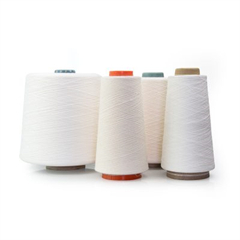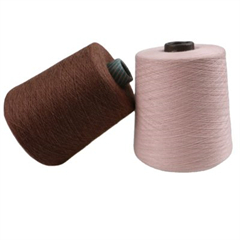Choosing eco-friendly yarn is an excellent way to practice sustainable crafting and reduce your environmental impact. Here are some eco-friendly yarn choices and considerations for sustainable crafting:
- Organic Cotton Yarn: Organic cotton is grown without synthetic pesticides or fertilizers. Look for yarn labeled as “organic cotton” to ensure it meets organic standards. Organic cotton yarn is soft, breathable, and suitable for a wide range of projects.
- Bamboo Yarn: Bamboo yarn is made from bamboo grass, a fast-growing and renewable resource. It is naturally antibacterial, moisture-wicking, and soft to the touch. Ensure the bamboo yarn is processed using eco-friendly methods, as some bamboo yarn production can involve harmful chemicals.
- Hemp Yarn: Hemp is a sustainable fiber that grows quickly and requires minimal water and pesticides. Hemp yarn is durable and becomes softer with each wash. It’s a great choice for eco-conscious crafters.
- Recycled Yarn: Recycled yarn is made from reclaimed or recycled fibers, including post-consumer waste like plastic bottles or textile scraps. This reduces the demand for new resources and decreases landfill waste.
- Tencel/Lyocell Yarn: Tencel (also known as Lyocell) is made from sustainably sourced wood pulp, often from eucalyptus or beech trees. It’s biodegradable, soft, and has excellent moisture-wicking properties.
- Wool from Ethical Sources: If you prefer animal-based fibers, choose yarn from ethical sources that prioritize animal welfare, like certified organic or cruelty-free wool.
- Plant-Dyed Yarn: Yarns dyed using natural, plant-based dyes are a sustainable choice. These dyes are typically less harmful to the environment than synthetic dyes, which often contain toxic chemicals.
- Local or Small-Batch Yarn: Support local and small-scale yarn producers who may prioritize sustainability and ethical practices. This reduces the carbon footprint associated with yarn production and transportation.
- Upcycled Yarn: Upcycled yarn is made from unraveled or repurposed textiles, such as old sweaters. Crafters can unravel old projects or use upcycled yarn to create something new.
- Handspun Yarn: Handspun yarn is often made by independent artisans who prioritize sustainable practices. You can find handspun yarn made from eco-friendly fibers like organic cotton, hemp, or plant-based materials.
- Natural Fiber Blends: Look for yarns that blend natural fibers like organic cotton, bamboo, or hemp with other sustainable materials like recycled polyester or wool.
- Certifications: Consider yarns with certifications like GOTS (Global Organic Textile Standard), OEKO-TEX Standard 100, or Fair Trade, as these indicate environmentally friendly and ethical production practices.
- Local Sheep Wool: If you prefer wool, seek out yarns produced locally from well-cared-for sheep. Supporting local wool producers can be more sustainable than relying on imported wool.
- Zero-Waste Yarn: Some companies offer “zero-waste” yarns, where every part of the sheep, alpaca, or other fiber animal is used, minimizing waste.
When choosing eco-friendly yarn, consider your personal preferences, the intended project, and the specific environmental concerns that matter most to you. By selecting sustainable yarn options, you can enjoy your crafting hobby while contributing to a more environmentally conscious and responsible world.
























